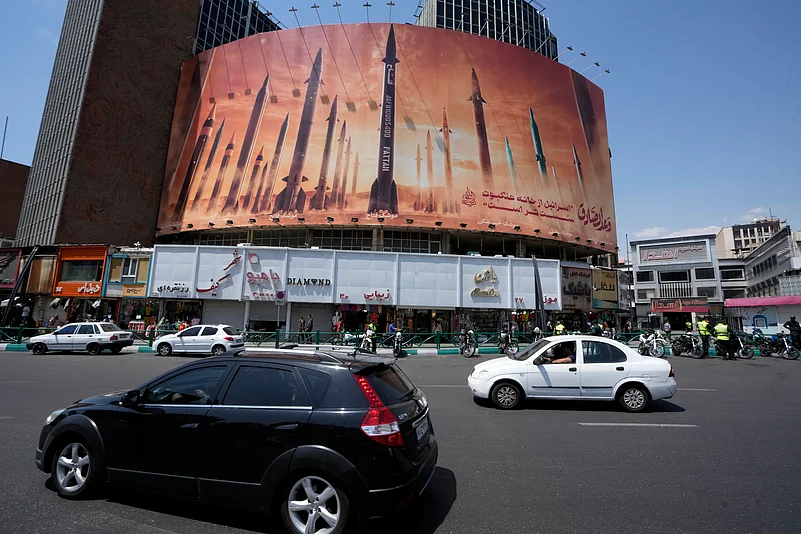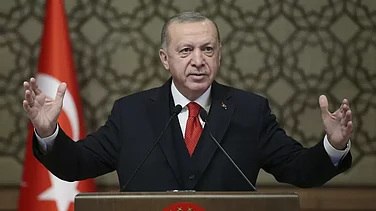Israel’s attack on Iran was a given. There was no way that Israel would allow Iran to get away after last week’s action by Tehran, though that caused hardly a whimper, with 99 per cent of the drones and missiles brought down by Israel and the US. Yet, despite today’s strike by Israel deep inside Iranian territory, no major damage was reported. The attack was not aimed at Iran’s nuclear sites that Israel had been itching to take down for over a decade.
Considering that Israel’s air power both defensive and offensive is one of the best in the world, it could do a lot of damage if that was the motive. But it was clear that Prime Minister Benjamin Netanyahu had paid heed to US President Joe Biden’s plea not to escalate the situation. As such, as of now- full details are not yet in – the attack was symbolic and had to do more with messaging and a warning to Iran.
Advertisement
It was also a show of strength by Israel. The message was simple we can come right into the heart of Iran and strike where we please, so beware. Israel chose Isfahan, where Iran’s nuclear facilities and research centres are located and exposed Iran’s vulnerability. Washington was kept in the loop about the attack and the US has made it very clear that it "did not green light" the attack.
Iran has also down played the strike. It had also said that it would not retaliate. Soon after Saturday’s attack, Iran had been thundering that any attempt by Israel to counter attack would be met with heavy and immediate response. The good news as of now is that neither Israel nor Iran is in the mood to escalate the situation that could plunge the region into turmoil and draw other nations into the war. Good sense has prevailed for the moment, but a minor incident could change everything.
Advertisement
The US and the G7 countries as well as the regional Sunni powers like Saudi Arabia, UAE, Turkey and other nations had all urged Israel not to retaliate last Saturday’s attack. Despite that advise Netanyahu heading a religious extreme right-wing coalition could not have let the matter rest. The Iranian attack was in response to Israel’s unprovoked bombing of the Iranian consulate in Damascus in which two top generals of Iran’s Revolutionary Guards were killed along with seven soldiers. Israel had been targeting Iranian scientists and military leaders often and had gotten away with it. However by attacking the consulate in Syria, Israel had crossed what Iran considered a red line. Iran and Israel had been shadow boxing and carrying on proxy war’s against each other since 2010. With Iran’s attack last week and Israel’s action today they are for the first time openly targeting each other’s territory.
Joe Biden and his administration must be pleased that Prime Minister Netanyahu had partially listened to American advice by conducting more of a symbolic attack on Iran. Some commentators regard today’s action as helping to calm rising tensions in the region already on edge since the Hamas-Israel confrontation.
Ian Bremmer head of the political risk research founder of the Eurasia Group, called Israel’s actions as "de escalatory" and wrote on X : "Israeli strike against Iran is deescalatory," and "had to take some sort of action. Restrained compared to attacks on Damascus that precipitated the crisis." Whether his assessment is correct has to be seen.
Advertisement
The fact remains that neither Israel nor Iran is prepared for a full scale war, despite the sound and fury from both sides. Israel is already at war in Gaza. It has Hezbollah, Iran’s proxy to contend with in its border with Lebanon. The Houthis take pot shots at Israeli vessels and interests in the Red Sea waters. Armed pro-Iranian militia groups in Iraq can be activated by Iran at will. And as was evident during last week’s surprise attack by Iran that without the help of the US, UK, and Jordon, Israel was not in a position to stop all the 300 missiles and drones launched from Iran. This despite Israeli’s air defence system being one of the most sophisticated in the world.
Advertisement
Iran has few friends in the region. The Sunni powers – Saudi Arabia and the UAE had till recently worked together with Israel against Iran. Despite China playing peace maker and breaking the ice between Iran and the Saudi kingdom last year, distrust and fear of Shia Iran still remain. When push came to shove Riyadh opted to take Israel’s side against Iran. In fact when Iran alerted both Jordon and Saudi Arabia that the missiles and drones in its airspace was meant for Israel and not intended against them, Riyadh and Amman immediately conveyed the warning to Tel Aviv and Washington.
Advertisement
Iran has been under sanctions since the 1979 Revolution, and its defence equipment, mostly Russian made is now old and no match to the state of the art military hardware and air power that Israel has. Russia, Iran’s principle backer is preoccupied with the Ukraine war. Iran is in a vulnerable position when it comes to a full scale war with Israel.
Many believe while tension will continue, Israel and Iran have both had their say and the matter is now closed. So far so good, but nothing can be taken for granted in this volatile region.






















